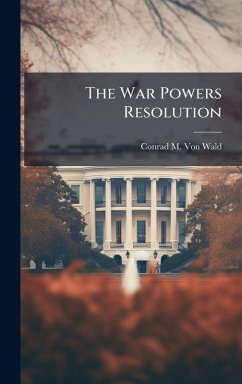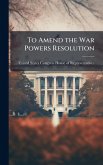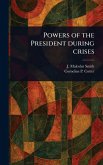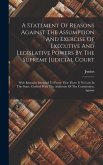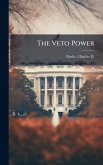America has always had public and congressional support as a vulnerable center of gravity. The War Powers Resolution (WPR), enacted in 1973, has the effect of magnifying the vulnerability of this American center of gravity. This is particularly true in operations short of war, such as our recent deployments to Lebanon, Somalia, and Haiti. Although many have called for the repeal of the WPR because of its alleged constitutional defects and its impractical implementation, these calls have not led to any action. More importantly, these calls have not retarded the magnifying effect which the WPR has on America's public and congressional support center of gravity in operations short of war. Based on this last reason, the author contends the WPR should be repealed as proposed on January 4, 1995, by Senator Robert Dole. This work has been selected by scholars as being culturally important, and is part of the knowledge base of civilization as we know it. This work was reproduced from the original artifact, and remains as true to the original work as possible. Therefore, you will see the original copyright references, library stamps (as most of these works have been housed in our most important libraries around the world), and other notations in the work. This work is in the public domain in the United States of America, and possibly other nations. Within the United States, you may freely copy and distribute this work, as no entity (individual or corporate) has a copyright on the body of the work. As a reproduction of a historical artifact, this work may contain missing or blurred pages, poor pictures, errant marks, etc. Scholars believe, and we concur, that this work is important enough to be preserved, reproduced, and made generally available to the public. We appreciate your support of the preservation process, and thank you for being an important part of keeping this knowledge alive and relevant.
Bitte wählen Sie Ihr Anliegen aus.
Rechnungen
Retourenschein anfordern
Bestellstatus
Storno

